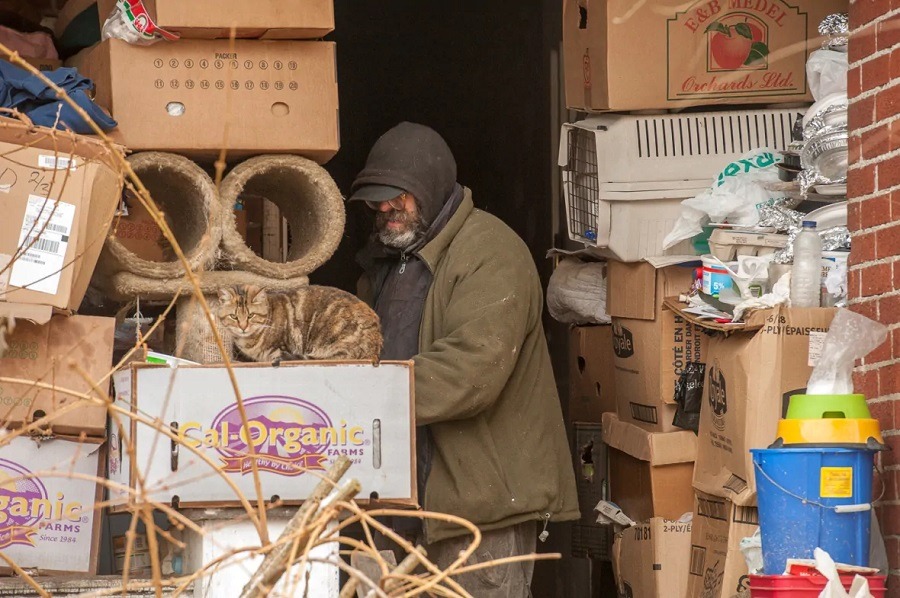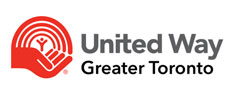How a new online resource is providing help to Toronto’s hoarders


16 community and government agencies came together to create the website last month
Narrow pathways weave through Yvonne Zilber’s two-bedroom Toronto apartment, allowing her to pass through piles of clothes, books, dishes, picture frames and furniture pushed up against her walls.
Zilber never put a label on her need to collect and keep various items until one day her daughter made her realize she needed help.
“The things just keep being piled up,” Zilber said in a recent interview on CBC’s Metro Morning.
“She had gotten books for me to read, which I refused to read, and it took me a long time to accept it. That I was a hoarder.”
Zilber is just one of many in the city with a hoarding disorder. Tracey Turiff, a spokesperson for the Toronto Hoarding Support Services Network (THSSN), said it received more than a 1,000 referrals in recent years.
That’s why the group of 16 community service and government agencies, led by VHA Home HealthCare, decided to launch a city-funded website last month filled with supports and resources for hoarders.
According to their news release, it’s to address a “challenging gap” in information and to reduce the stigma associated with the condition.
Dan Breault, the city’s manager of Community Safety and Well-being, said it’s incumbent on service providers and governments to find new and innovative ways to help vulnerable populations.
“When somebody is socially isolated then it’s difficult to find out how they’re doing and how they’re living,” he said. “This [website] just made sense.”
The new website also offers assessment tools, giving service providers an idea of who could be in danger because of their hoarding.
Hoarding disorder
According to the THSSN, between 1.5 and 6 per cent of the Canadian population has a hoarding problem, with rates increasing with age.
The group says the 1,044 referrals it received in 2016 and 2017 came from all over the city. Here’s a breakdown:
- Toronto-East: 517
- North York: 145
- Scarborough: 151
- Etobicoke: 231
In 34 of the above cases, the city had to take enforcement action.
Breault said it’s important to have a tool to find those people so they’re not identified when “it’s much too late.”
The group describes the disorder as a “compulsive desire to collect items,” which “can cause incidents of injury in the home, collapsing floors, infestations and fire hazards. It often leads to eviction and can take a heavy toll on mental health, physical health and relationships.”
Zilber started seeking help seven years ago, but she said she still finds it hard to let go of her possessions.
I know cognitively it’s not okay, but it seems okay.– Yvonne Zilber
“The things are good things. It’s things I buy to use or I think I need, but somehow my brain fires in a way that I don’t understand … I know cognitively it’s not okay, but it seems okay.”
THSSN chair Trudy Huet works with people like Zilber to declutter their spaces, and she said one of the worst things you can do is just throw their things away.
“You’re re-traumatizing the individual,” she said. “It’s not about the stuff. At the end of the day, it’s about the individual.”
As well, Huet said it’s equally unhelpful to suggest a hoarder stop buying things. She said through their condition, they will end up acquiring items at social events, through friends and even by picking things up off the curb.
“What we’re trying to do is build a relationship and really get an understanding,” Huet said, adding that hoarding is a mental health condition that affects a wide spectrum of people.
Getting help
The THSSN’s new website — created using a $45,000 contribution from the city — offers resources and information for hoarders themselves, their loved ones and for the community in general.
t’s getting good traffic so far, according to Turiff.
As for Zilber, she’s now getting treatment and said she’s making progress.
“I want to have a beautiful home, and I get the things to have a beautiful home, but it just baffles me. I cannot make it happen.”
If you or someone you know needs help, you can visit the site at https://www.torontohoardingnetwork.ca or contact the THSSN at 416-482-4622.



